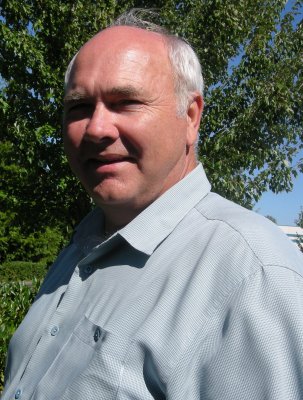Now better known for tasty vegetable soups and free-range chicken broth than soymilk, 360-employee Pacific Natural Foods is stretching its boundaries by getting into the dairy business and running its own beef processing plant.
Soup, happy cows and farms of the future
TWENTY YEARS AGO Chuck Eggert started a beverage company in Tualatin. Now better known for tasty vegetable soups and free-range chicken broth than soymilk, 360-employee Pacific Natural Foods is stretching its boundaries by getting into the dairy business and running its own beef processing plant. We pulled Eggert, who is also a co-founder of the New Seasons grocery chain, in from the celery fields to talk about how the natural food business is changing and what it means for Oregon agriculture.
How long has Pacific been farming? Seven years. It’s gotten more involved as we’ve gone along. On the vegetable side, it’s demonstration. We’re growing butternut squash and celery to encourage other people to grow it. We grow some to verify the varieties, but our goal isn’t to grow everything ourselves but to show others you can grow these organic crops and make money doing it.
What about dairy operations? On the dairy side, it’s serious business. We just have better control over the milk supply. We have one dairy in Aurora that we’ve had for about a year and a half, and we’re building another one. It’s all state-of-the-art equipment. We’re trying to design them so you can have a mid-sized dairy that works in the Willamette Valley. Our dairies are in the 500-cow range. At that size it can be a reasonable family opportunity.
Do you want your dairies to be models for others in western Oregon? Yes. They’re low-impact, they can fit in a neighborhood.
How do you get the word out? Do you give tours? We do very little of that. Until we have something that’s unique, we really don’t talk about it much. We want it to be right. If you run things well from an environmental standpoint, you end up producing the lowest-priced product. We can produce organic milk as cheap as anyone and still do things well. There’s something to this contented cow thing. But it helps to have a long-term perspective because you’re not going to make money farming next week just by thinking about it.
What about meat processing? We run our plant, Dayton Natural Meats, to organic standards. There’s a need in Oregon to have places for animals to go where they don’t have to travel huge distances. We’re building a mid-sized, state-of-the-art processing facility. We think there’s an opportunity to do more of those in Oregon, to revitalize the meat industry. We like being in Oregon, we like the agriculture here, but it does need to evolve and change.
CHRISTINA WILLIAMS
Have an opinion? E-mail [email protected]



